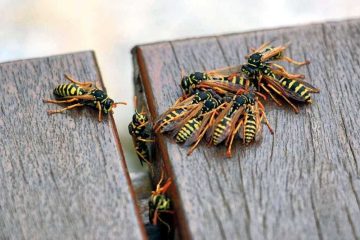Who is Responsible For Pest Control When Renting a Home?

When you rent a home, it is important to know who is responsible for pest control. Generally, the housing board is responsible for keeping the common areas free of pests. If you notice an infestation, you should contact the housing board and inform them. They can then take appropriate steps to prevent the infestation from spreading.
Landlord’s Responsiblities
When renting a home, it is important to follow proper pest control practices. This means sealing up any food items, cleaning and emptying garbage on a regular basis, and doing a thorough pest inspection of the property. In addition, you must inform your landlord immediately of any pest infestation so that they can remedy the situation. If you do not do these things, you could be held responsible for any pest control fees.
Landlords’ responsibilities for pest control vary from state to state. It is important to check your lease for any specific terms and conditions, and ask about your landlord’s policies. Usually, landlords are responsible for pest control if it affects their tenants’ health. It is important to clarify these issues with your landlord before you sign the lease.
Pests are common during different seasons, and your tenants should be made aware of any infestations. Fortunately, it’s relatively easy to get rid of them by following some simple steps. You can either hire an exterminator to perform pest control in the property or call the landlord directly. If your landlord fails to address the issue promptly, you could be fined or even faced with civil litigation. In addition to contacting the landlord for pest control, you should also make sure the property is clean and well-maintained.
Pests are a common problem in rental homes, and the landlord is responsible for taking steps to control these infestations. Pests can range from mice to rats to cockroaches and ants. Bedbugs are a particular concern for tenants, and your landlord is generally responsible for exterminating them.
Tenant’s Responsiblities
As a tenant, you are responsible for keeping your property free of pests. This includes making sure that food is sealed, vacuuming floors, and emptying the trash regularly. If you find any evidence of infestation, notify your landlord immediately. You may be responsible for pest control costs if you fail to address the problem promptly. In addition to reporting any problems to the landlord, you must also keep the property clean and remove trash.
Many pest infestations are caused by tenants. For example, a tenant who spills food in the kitchen will likely be responsible for the extermination of the entire building. Furthermore, tenants must take responsibility for seasonal pest control, including treatments for rodents, rats, and termites.
In addition to reporting infestations to the landlord, tenants must follow all state pest control laws. In addition, tenants should keep their units clean, remove trash regularly, and treat their pets with flea prevention. They also must avoid bringing in pests from outside. Bed bugs, for example, are easily spread person-to-person. Moreover, tenants should make sure that they are taking care of their own pets and do not allow them to live with their landlord’s pet.
Tenant’s responsibilities for pest control while renting should be clear in the lease. Some states, such as Arkansas, place the responsibility for bedbug extermination on tenants. However, in other states, the responsibility falls on the landlord. Therefore, it is important to check the terms of the rental agreement before you sign it. If you discover bedbug infestation, you should report it to your landlord within 96 days.
The Lease Aggreement
When renting a property, you must read the Lease Agreement carefully to determine who is responsible for pest control. The Lease Agreement should clearly state which pests are the tenant’s responsibility and which are the landlord’s. You should also check to make sure the contract complies with local laws on pest control.
If the tenant does not pay the pest control fees, it is your responsibility to do so. You should also make sure that the landlord has documented any history of pest problems. It’s important to document the pest issue, as it could have been caused by the tenant’s improper disposal of garbage or unhealthy living conditions.
When it comes to pest control, many landlords have different policies and procedures. While in most states, landlords must keep their rental units free of pests, what constitutes a pest will vary. In Georgia, the landlord is not required to provide pest control, and in Virginia, a landlord is only responsible for applying pesticides. If bugs are discovered after the application, the tenant may be responsible for paying for pest control. Similarly, in New Jersey, landlords must keep rental properties free from pest infestations and rat-proofed.
A good lease will include provisions that state who is responsible for pest control, and when the tenant must pay for it. While landlords should avoid drafting terms that contradict local laws, a well-written lease can place more responsibility on the landlord than is necessary.
Looking for an excellent pest control option? Check out North Fulton Pest Solutions today.












